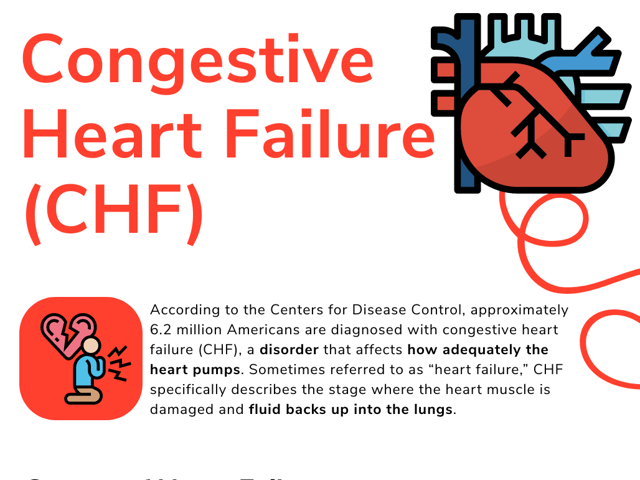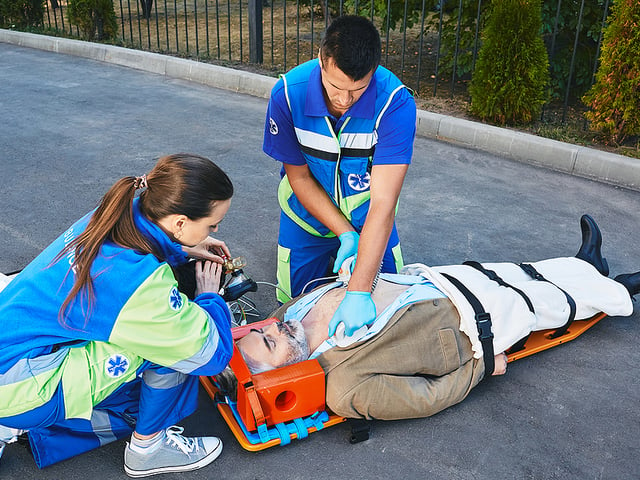
Congestive Heart Failure (CHF)
According to the Centers for Disease Control, approximately 6.2 million Americans are diagnosed with congestive heart failure (CHF), a disorder that affects how adequately the heart pumps. Sometimes referred to as “heart failure,” CHF specifically describes the stage where the heart muscle is damaged and fluid backs up into the lungs.
Causes of Heart Failure
When the ventricular heart muscle sustains permanent damage and cannot keep up with the flow of blood returning from the atria, CHF can occur. Some causes of damage to the heart muscle include:
- Myocardial infarction (heart attack)
- Damage to the heart valve
- Chronic hypertension (high blood pressure)
- Coronary artery disease
- Excessive alcohol use
- Infection
Results of Decreased Heart Function
When the heart muscle fails to contract effectively, specific changes in the heart function occur to maintain sufficient cardiac output. The left ventricle enlarges to increase the volume of blood pumped each minute, and the heart rate increases. CHF develops when the ventricles cannot pump a sufficient volume of blood to the body, resulting in blood and other fluids backing up in the lungs, liver, abdomen, and lower extremities.
Signs and Symptoms
Patients with CHF can present with:
- Difficulty breathing (which worsens when lying down)
- Distended neck veins
- Pedal edema
- High blood pressure
- Rapid pulse
- Rapid respirations
- Pale or cyanotic skin
- Diaphoresis
- Rales (crackles) auscultated midway down the back or at the top of the lungs in severe cases
- Pink, frothy sputum
- Chest pain (This may or may not be present.)
Treatment
- Obtain vital signs and administer high-flow oxygen by a nonrebreathing mask. Depending on your protocol, a continuous positive airway pressure (CPAP) may be ordered.
- Keep the patient seated upright with their legs down.
- Nitroglycerin may be ordered if the systolic blood pressure is greater than 100 mm Hg.
A person with CHF may be very agitated since they are having a difficult time breathing. Keep them calm, make your patient as comfortable as possible, and reassure them to decrease their anxiety.

Keep Reading

Emergency Medical Technician Test Blog
How Many Questions are on the NREMT?
The National Registry of Emergency Medical Technicians (NREMT) exam is …

Emergency Medical Technician Test Blog
How Hard is the EMT Test?
EMTs (Emergency Medical Technicians) are required to have strong medica…

Emergency Medical Technician Test Blog
What Is a Passing Score on the NREMT Exam?
The job outlook for EMTs and paramedics is strong. The Bureau of Labor …